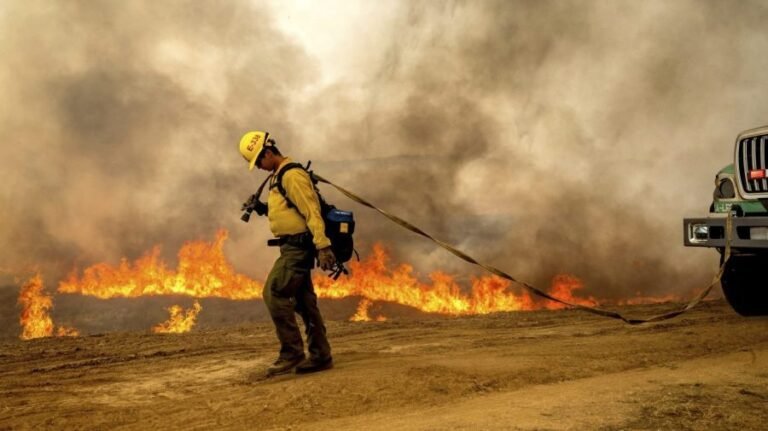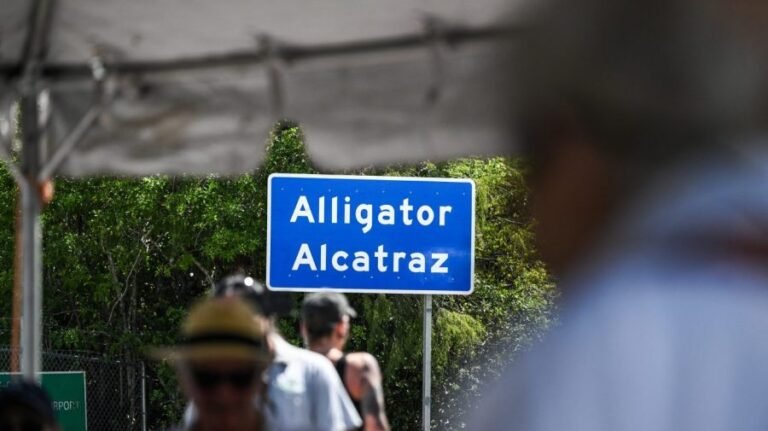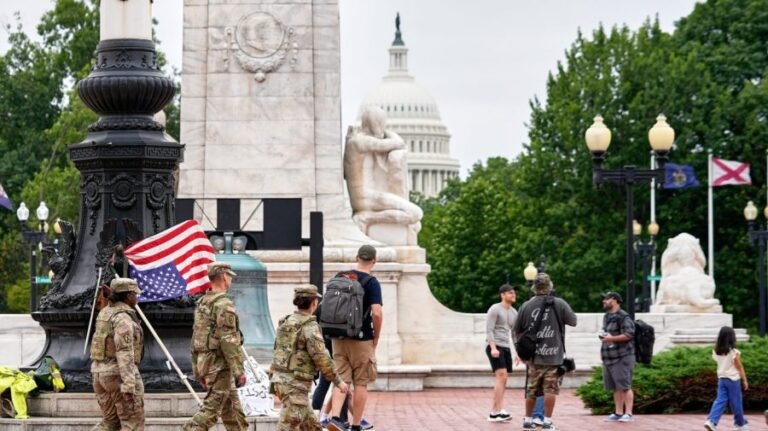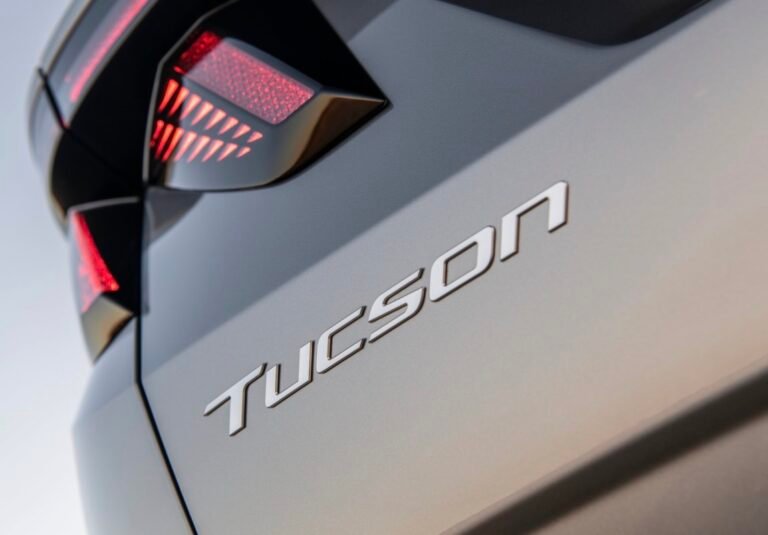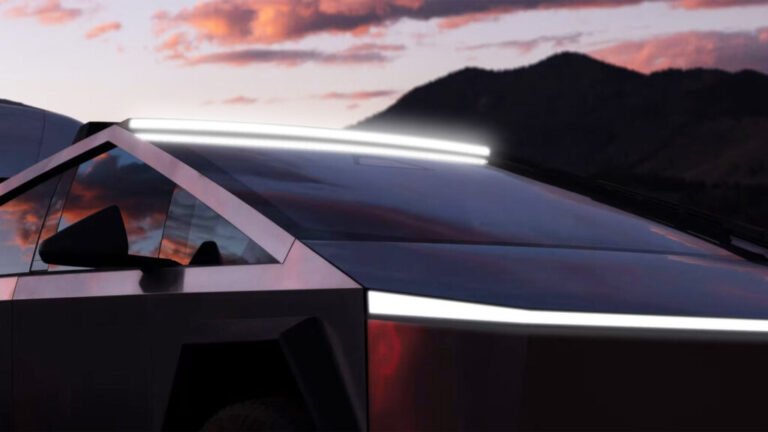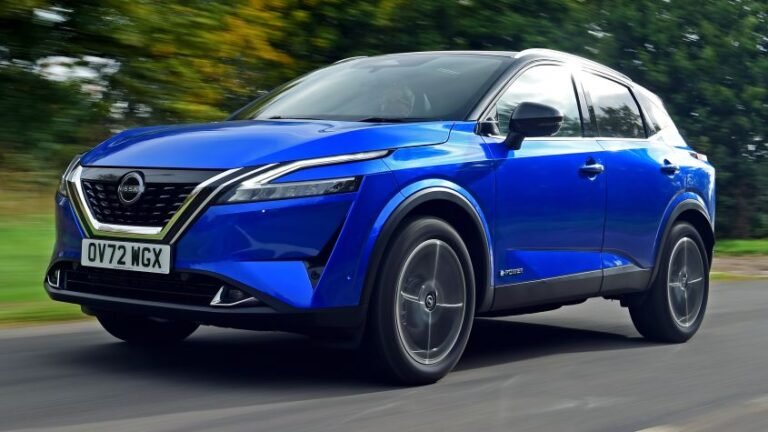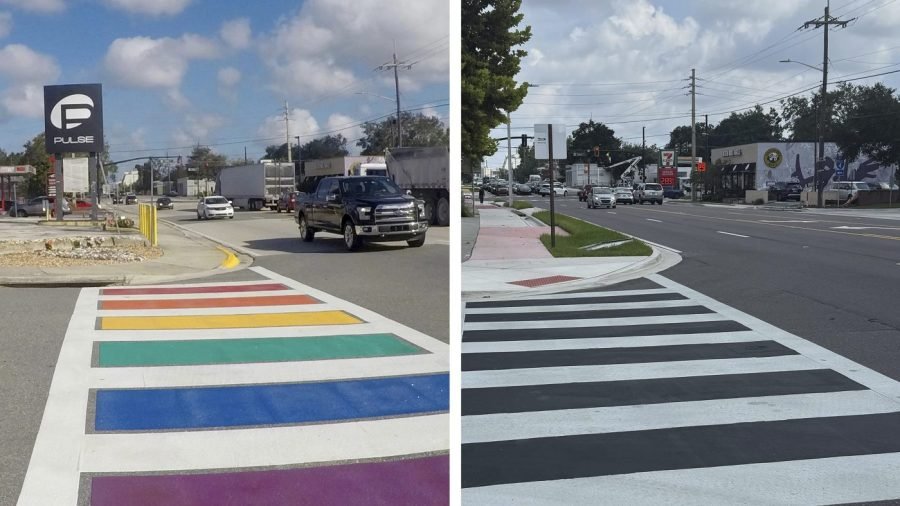
A rainbow crosswalk near Pulse nightclub in Orlando, Fla., honoring the victims of one of the nation’s deadliest mass shootings, was painted over late Wednesday after close to a decade, part of a state and nationwide effort to scrub “political banners” from public roads.
The Pulse Memorial’s crosswalk, first painted in 2017, honored the 49 people killed in 2016 when a gunman opened fire at Pulse, an LGBTQ-friendly nightclub. The city of Orlando purchased the site in 2023, planning to demolish the building, which has been closed since 2016, and construct a permanent memorial in its place.
Florida state Sen. Carlos Guillermo Smith (D), who in 2016 became the first openly gay Latino elected to the Legislature, called the crosswalk’s removal a “disgusting betrayal” in a post on the social platform X.
“Of course they did this in the middle of the night,” Smith said Thursday in a nearly two-minute-long video in front of the painted-over crosswalk, “because they knew what they were doing is wrong.”
Florida Gov. Ron DeSantis (R), responding to Smith’s video, said, “We will not allow our state roads to be commandeered for political purposes.”
In June, DeSantis omitted references to LGBTQ and Hispanic people — communities disproportionately affected by the Pulse shooting — in an annual order honoring the tragedy’s victims. DeSantis recognized both groups in nearly identical orders issued during each of his last five years in office.
In 2019, his first year as governor, DeSantis issued an amended proclamation after an initial statement honoring Pulse Remembrance Day also declined to mention LGBTQ people. DeSantis at the time said he was not involved in drafting the first proclamation and requested that his office issue a new one once he became aware of the omission.
The state’s decision to remove the rainbow crosswalk at Pulse comes as President Trump’s administration doubles down on efforts against diversity, equity and inclusion initiatives, and transgender rights. In July, Transportation Secretary Sean Duffy instructed governors to produce a list of “arterial segments,” including intersections, in each state.
“Taxpayers expect their dollars to fund safe streets, not rainbow crosswalks,” Duffy said on social media.
Florida officials in recent months have instructed cities throughout the state to remove rainbow-painted crosswalks and intersections or risk losing transportation funding. In June, Will Watts, an assistant secretary for the Florida Department of Transportation, wrote in a memo that “surface art” not directly contributing to traffic safety “can lead to distractions or misunderstandings, jeopardizing both driver and pedestrian safety.”
“Any identified non-compliant traffic control devices or pavement markings currently installed on Florida public roads are to be immediately remedied, i.e., removed, modified or replaced,” Watts wrote in the memo. He mentioned specifically surface art “associated with social, political or ideological messages or images.”
In a statement posted Thursday to social media, Orlando Mayor Buddy Dyer, a Democrat, said the city is “devastated” by the crosswalk’s removal.
“This callous action of hastily removing part of a memorial to what was at the time our nation’s largest mass shooting, without any supporting safety data or discussion, is a cruel political act,” Dyer said. “The City of Orlando’s safety crosswalks were all installed in close coordination with the state and adhere to national safety standards. In fact, the crosswalk that is part of the Pulse Memorial was installed by the state.”
A spokesperson for Florida’s Transportation Department did not immediately return to The Hill’s request for comment or answer questions about Dyer’s assertion that the crosswalk was removed without supporting safety documentation.
Brandon Wolf, a survivor of the Pulse shooting, also condemned the crosswalk’s removal.
“In the dark of night, they came to erase our show of solidarity, our declaration that we will never forget,” Wolf wrote Thursday on X. “The cowards who feel threatened by our lives should feel lucky they didn’t have to bury the ones they love — then watch the state come & desecrate their memory.”
Wolf, a spokesperson for the Human Rights Campaign, the nation’s largest LGBTQ advocacy group, lost two close friends, Drew Leinonen and Juan Guerrero, in the shooting at Pulse.
The state LGBTQ rights group Equality Florida said it plans to gather peacefully at the Pulse Memorial on Thursday evening, calling or Floridians across the state to “make their visibility undeniable” with rainbow stickers, clothing and flags and by using the hashtag #ShowYourRainbow on social media.
In a news release, the organization called on cities throughout Florida to install “permanent exhibits of LGBTQ visibility.”
“For decades, Florida politicians have tried to criminalize LGBTQ existence, dismantle families, and create a climate where violence is normalized. Monuments, murals, and rainbow crosswalks are not just symbols; they are powerful celebrations of LGBTQ existence,” the group said. “They are our commitment to remember, and our promise that these harms will not be inflicted again.”
